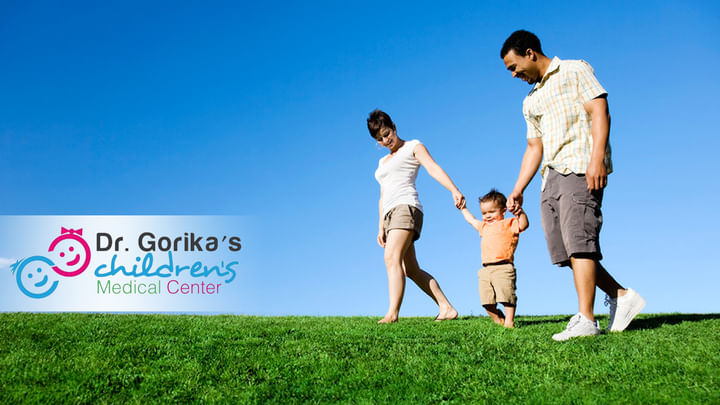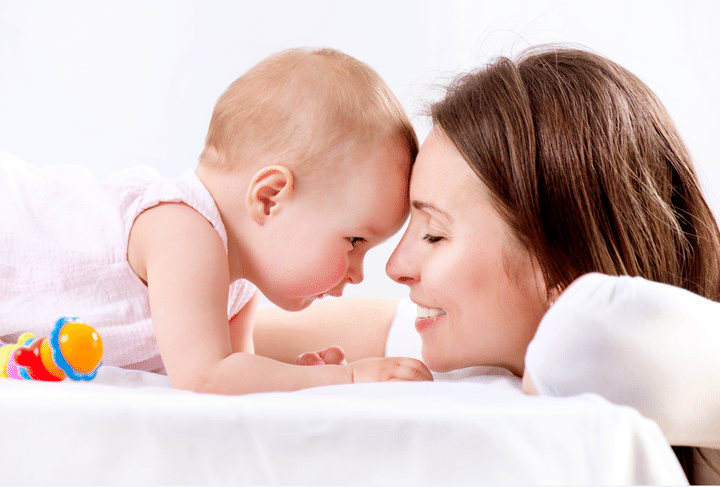Get the App
For Doctors
Login/Sign-up
Last Updated: May 06, 2016
BookMark
Report
Dealing With A Baby's First Cold
With the "sick season" upon us, I'm starting to see more babies with cold symptoms and their concerned parents wondering "what can they do to help their precious bundle of joy?"
In pediatrics, we often say “children are not little adults” but in the case of the common cold, they really are. They have the same symptoms, runny nose, red-rimmed eyes, cough and they just FEEL YUCKY! With those symptoms most babies are fussier than usual and don’t sleep well at night, which is just like an adult with a cold (or maybe just me). for an infant, they are usually up and down all night, don’t feed as well, and just want to be held a little more.
When an infant gets a cold it is not uncommon for them to run a fever along with the cold symptoms. This usually only lasts a day or two and then resolves, but the other common cold symptoms may last from seven to 10 days.
With a cold they may not want to nurse or drink their bottle as well as they have a hard time breathing and sucking. This leads to a cranky baby, who may take less with each feeding, but will need to eat more often.
It is important to make sure that they stay hydrated. fluids are the most important thing. If your baby is having difficulty taking the bottle or latching on due to the congestion , you could feed with a katori spoon or a paladey with gaps in between . small frequent feeds will do the job.
Place the tip of the bulb syringe inside the baby’s nostril to remove mucous and help them breath and eat. You may also use a little salt water nose drops to squirt up their nose to help the mucous come out.
It also helps to get a mist humidifier to place in the room at night to help put some moisture in the air while the heat is running and the air is dry. The mist will also help alleviate some of the thicker mucous and also help the cough that accompanies the cold.
The most important thing to watch for is any sign of respiratory distress. A child’s breathing may “sound noisy” but it is important once again to look at their chest to make sure that they are not using those muscles between the ribs and “pulling” when they are breathing.
Coughs are also protective in that they help move mucous and keep the airway clear to prevent pneumonia. Lastly, your child should look a little better after the first several days of their cold. They should not develop fever later in the cold, and if they do it would be worth a pediatrician visit to check their ears. Not every baby with a cold gets an ear infection and they usually develop after they have had several days of cold symptoms, and not on the first day of a cold.
That’s your daily dose, stay tuned to my next update on your baby's health tips .Send in your questions or comments to babiesandmom.com !
Stay happy and stay healthy !
Dr Gorika's Children's Medical center
Our motto at GCMC is to "Treat every child as if you are treating your own child" This is one such destination where we assure perfect health for your little one. "We care for your newly born till they're eighteen"
BABIESANDMOM.COM
In pediatrics, we often say “children are not little adults” but in the case of the common cold, they really are. They have the same symptoms, runny nose, red-rimmed eyes, cough and they just FEEL YUCKY! With those symptoms most babies are fussier than usual and don’t sleep well at night, which is just like an adult with a cold (or maybe just me). for an infant, they are usually up and down all night, don’t feed as well, and just want to be held a little more.
When an infant gets a cold it is not uncommon for them to run a fever along with the cold symptoms. This usually only lasts a day or two and then resolves, but the other common cold symptoms may last from seven to 10 days.
With a cold they may not want to nurse or drink their bottle as well as they have a hard time breathing and sucking. This leads to a cranky baby, who may take less with each feeding, but will need to eat more often.
It is important to make sure that they stay hydrated. fluids are the most important thing. If your baby is having difficulty taking the bottle or latching on due to the congestion , you could feed with a katori spoon or a paladey with gaps in between . small frequent feeds will do the job.
Place the tip of the bulb syringe inside the baby’s nostril to remove mucous and help them breath and eat. You may also use a little salt water nose drops to squirt up their nose to help the mucous come out.
It also helps to get a mist humidifier to place in the room at night to help put some moisture in the air while the heat is running and the air is dry. The mist will also help alleviate some of the thicker mucous and also help the cough that accompanies the cold.
The most important thing to watch for is any sign of respiratory distress. A child’s breathing may “sound noisy” but it is important once again to look at their chest to make sure that they are not using those muscles between the ribs and “pulling” when they are breathing.
Coughs are also protective in that they help move mucous and keep the airway clear to prevent pneumonia. Lastly, your child should look a little better after the first several days of their cold. They should not develop fever later in the cold, and if they do it would be worth a pediatrician visit to check their ears. Not every baby with a cold gets an ear infection and they usually develop after they have had several days of cold symptoms, and not on the first day of a cold.
That’s your daily dose, stay tuned to my next update on your baby's health tips .Send in your questions or comments to babiesandmom.com !
Stay happy and stay healthy !
Dr Gorika's Children's Medical center
Our motto at GCMC is to "Treat every child as if you are treating your own child" This is one such destination where we assure perfect health for your little one. "We care for your newly born till they're eighteen"
BABIESANDMOM.COM




+1.svg)
